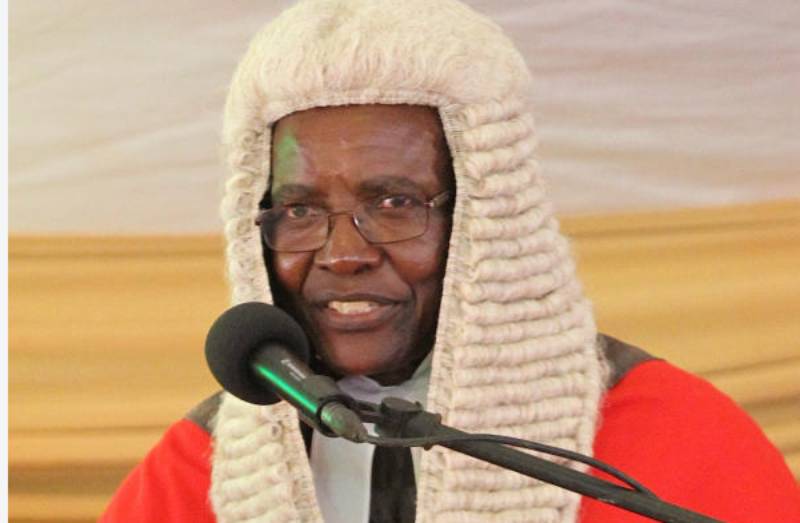Share this
You will now be served court orders through WhatsApp
It is now legal to be served court orders through mobile phone enabled messaging applications.
New directions by Chief Justice David Maraga, gazetted last Friday, have now legalised service through Facebook, Twitter, WhatsApp, Telegram or any other mobile phone enabled messaging applications.With the courts closed due to risks posed by Covid-19, the Judiciary is taking advantage of technology to ensure the wheels of justice keep turning.However, the conservative legal profession has cautiously embraced technology. It is unlikely that a court will accept an argument by a lawyer that he served court orders on WhatsApp, Facebook or Twitter. At the same time, some government agencies have no official social media accounts.
If Justice Maraga rules outlive Covid-19, they will jolt the traditional practice and may render thousands of process servers jobless. A report by Jumia Business Intelligence and GSMA Mobile released two years ago indicated that at least 60 per cent of Kenyans have access to smart phones.In a decade’s old tradition borrowed from the colonial masters, courts only allow physical service of court orders or papers to the opponent. He or she will either sign or stamp a copy of the document as received. The person who served the papers will then swear an affidavit that is filed in court as proof that the other party either agreed or declined service.Another option of service is buying newspaper space. A copy of the newspaper is then presented in court.
Maraga now makes mobile phone a court process hub, with a blue tick as proof one saw the orders.“Service of documents and court process: During this period, parties are directed, whenever possible and unless otherwise directed by the court, to serve court documents and processes through electronic mail services and mobile enabled messaging applications as provided for under Order 5 Rules 22B and 22C of the Civil Procedure Rules,” the directions read in part.
The order is valid for 30 days, but there might be an extension if coronavirus continues to ravage the world.According to the directions, court documents will bear names and contacts of either a lawyer or a litigant. One will be required to present the court papers before a registry where a clerk will stamp each page. A litigant will then scan all the stamped pages and send them to the court’s email and to the other parties through email.Justice Maraga was of the view that civil, judicial review and constitutional cases may be settled without oral hearings. He directed parties to file written submissions which will be limited to a number of pages.“Where the court has directed that the matter shall be canvassed through written submissions, the parties, where represented and in appropriate cases, unrepresented parties, shall furnish the court and the opposite parties or their advocates on record with copies of the submissions in electronic format indicating the case number and the court before which the matter is.”
“The submissions shall be in Microsoft Word, with a minimum font size used of 12 and 1.5 spacing. The electronic documents shall be sent to the email address of the court before which the matter is,” directed Maraga.Once a judge delivers a judgment, there will be a stay, the winning party will not execute the orders issued for two weeks. The rules allow the court or litigants to also propose a longer amnesty period.In the regulations, the CJ encouraged warring parties to reach out of court settlement. He directed that where parties in a case have agreed to settle the same, they will individually write to the court and the opposing side will concur that he/she has consented.Maraga waived the requirement for all parties to sign a consent form.“Where parties have agreed on a consent, the consent shall be communicated by email and recorded as an order of the court. It shall not be necessary that all the parties sign a consent as long as they confirm in writing or by email their concurrence to the terms thereof. Confirmation of concurrence shall be emailed to the court and the court shall print and file it together with the consent in the case file,” he said.





















